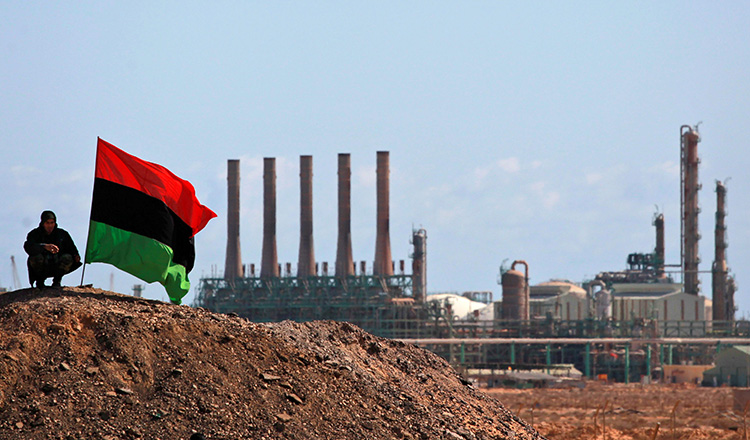
Oil prices surged to their highest levels in nearly two weeks on Monday, driven by reports of a production shutdown in Libya due to escalating political tensions between the country’s rival governments.
Brent crude futures closed 3% higher at $81.43 per barrel, while the U.S. benchmark, West Texas Intermediate, saw a 3.5% increase, settling at $77.42 per barrel.
The spike in prices comes amid ongoing geopolitical concerns in the Middle East, where Israeli military actions in southern Lebanon have heightened fears of regional instability. However, analysts pointed to the situation in Libya as the primary factor behind the sharp rise in oil prices.
Phil Flynn of the Price Futures Group noted that while geopolitical risks had been largely overlooked by oil markets in recent weeks due to the lack of significant supply disruptions, the Libyan news could mark a turning point.
Libya, a key oil exporter producing around 1 million barrels per day, has been mired in chaos since the 2011 NATO-backed uprising that ousted Muammar Gaddafi. On Monday, the country’s eastern government, which lacks international recognition, announced it would halt all oil production and exports. This move is seen as part of a deepening power struggle over the leadership of the Central Bank of Libya (CBL).

Abdul Hamid Dbeibeh, prime minister of the western Tripoli-based government, has been attempting to replace Sadiq al-Kabir, the current central bank governor. The bank, which controls billions of dollars in oil revenue—Libya’s sole source of income—has become the focal point of the rivalry between the two factions. Kabir, backed by the eastern parliament and warlord Khalifa Haftar, has refused to step down, despite a government delegation from Tripoli reportedly taking over the bank’s premises.
Wolfram Lacher, a Libya expert at the German Institute for International and Security Affairs, described the oil shutdown as a “negotiating tactic” in the power struggle over the central bank’s leadership. He emphasized that the Tripoli government’s physical control of the bank does not equate to operational control, which requires international recognition.
Efforts by the United Nations to hold elections and establish a unified government in Libya have repeatedly failed. According to UN Security Council resolutions, only the central bank in Tripoli is authorized to manage and distribute the country’s oil revenues. Sadiq al-Kabir has held the governor’s position since 2012.





